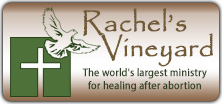The following has been edited from an earlier pastoral letter to the priests of the Diocese of Lake Charles in June of 2018. The Catechism of the Catholic Church had just observed the 25th Anniversary of its promulgation.
Over the last few years, I have become increasingly aware of the concerns and puzzlement of Catholic Christians concerning Catholic teaching. Most of this confusion is generated by, but not confined to, exposure to the media. For any of us, who love the Church and the authentic teachings of Jesus Christ as found in the Sacred Scriptures and Sacred Tradition, this is disconcerting. That the Catholic faithful sense a lack of clarity in fundamentals of doctrine, such as the Eucharistic Presence, the indissolubility of sacramental marriage, the very definition of matrimony itself, the existence of hell, the nature of sin, the consequences of moral choice, and the authority of the Sacred Scriptures, is distressing to me, as a Bishop, and should be to any ordained cleric, catechetical instructor, or Catholic parent.
In October of 1992, Pope St. John Paul II issued the Apostolic Constitution Fidei depositum, on the publication of the Catechism of the Catholic Church. In the opening sentence of the document, Pope St. John Paul II wrote, “Guarding the Deposit of Faith is the mission which the Lord entrusted to His Church, and which she fulfills in every age.” The Holy Father later asked in the document that “… all the Church’s Pastors and the Christian faithful … receive this catechism in a spirit of communion and to use it assiduously in fulfilling their mission of proclaiming the faith and calling people to the Gospel life. This catechism is given to them that it may be a sure and authentic reference text for teaching catholic doctrine…. It is also offered to all the faithful who wish to deepen their knowledge of the unfathomable riches of salvation (cf. Ephesians 3:8).”
The Catechism of the Catholic Church remains an indispensable source to assist in dispelling the confusion that exists today. We should use it. When questions arise, we should consult it. When fundamental teachings are attacked, we should seek the correct answer by utilizing this rich resource.
The truths of the faith are not clarified in casual “tweets.” Nor are they officially communicated by informal interviews granted to popular journalists. They are certainly not treated fairly in the speculations of dubious theologians and self-proclaimed experts. When I want a diagnosis on my health, I go to my doctor. I may consult the electronic media or inquire about the experiences of my neighbor, but when I want accuracy and truth concerning my health, I go to the expert with knowledge of the illness. A doctor may give me a casual opinion or speculative assessment when we meet in the grocery store or at a social gathering. However, nothing substitutes for the professional judgment of a physician who has examined the patient, administered the appropriate tests, formulated a well-informed diagnosis and with the best interests of the patient in mind assigned a treatment. Similarly, when I want an articulation of Church teaching, I do not find it in agenda-driven journals or the opinions of malcontents, off-the-cuff remarks, or media interviews.
Furthermore, the truths of the faith do not originate in my preferences or some trend-driven discernment presumed more enlightened. The truths of the faith originate in the salvific Will of God, revealed fully in Jesus Christ, and officially taught by the Church, without prejudice and with abiding charity. St. Paul wrote prophetically to St. Timothy: “For the time will come when people will not tolerate sound doctrine but, following their own desires and insatiable curiosity, will accumulate teachers and will stop listening to the truth and will be diverted to myths. But you, be self-possessed in all circumstances; put up with hardship; perform the work of an evangelist; fulfill your ministry” (2 Timothy 4:3-5). St. Paul understood well, for he saw it happening in his own day, that there is always a tendency to deviate from the truth. The truth is compromised when our “own desires” take precedence. The truth is not a matter of opinion. Revealed truth by its very definition is a gift.
St. Paul felt so strongly about this teaching that he addressed a scathing condemnation to those who pervert the truth of the Gospel: “But even if we or an angel from heaven should preach a gospel other than the one that we preached to you, let that one be accursed! As we have said before, and now I say again, if anyone preaches to you a gospel other than the one that you received, let that one be accursed!” (Galatians 1:8-9).
At moments such as these in our history, we must courageously live by the truth as revealed by God in Jesus Christ and taught by His Church down through the centuries. The truths of our faith are a most prized possession. We cannot dismiss them or view them as a human invention. We should approach them with respect and reverence, as having come from the font of Divine Revelation. The Catechism of the Catholic Church is a most dependable and trustworthy articulation of these revealed truths. And we have a serious obligation to ensure that the Deposit of Faith is communicated in all charity and with all the accuracy and brilliance that the truth deserves.
















